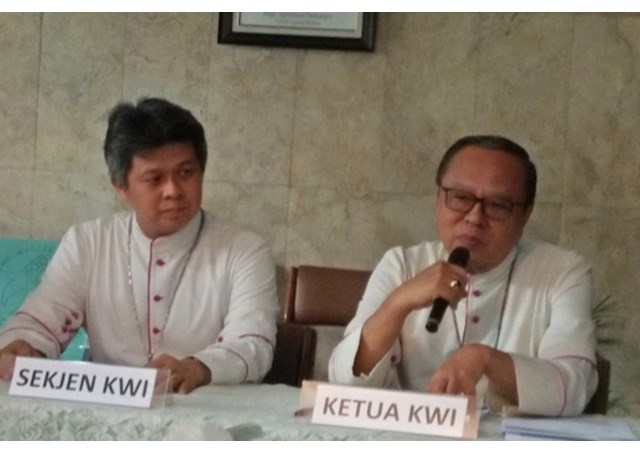
Indonesian Catholics urged to fight corruption in society, Church

Indonesia’s Catholic bishops ended their 11-day annual meeting on Thursday with a pastoral call urging Catholics to unite to fight deep-rooted corruption that has infiltrated all levels of society, including the Church. "Corruption can be found everywhere. It can be found in the business world as well as in state institutions. It even can be found in religious institutions including the church," the bishops said in a letter after their Oct. 31-Nov. 10 meeting in Jakarta. They noted that “the pattern of corruption within the Church is usually similar to that found in other institutions.” “Expenditure on unclear budgets, marking-up budgets needed for various projects, and the use of fictitious receipts," the bishops added. Corruption has destroyed human dignity and been difficult to fight because it takes place on a large scale, they said. "Fighting corruption must be done through a joint movement and carried out in a transparent, accountable and credible way," the letter said.
The Indonesian Bishops’ Conference chairman, Archbishop Ignatius Suharyo of Jakarta, said this could be achieved through self-renewal. "It’s impossible to completely get rid of corruption. But at least, it can be reduced to the smallest possible amount within the church through a joint movement," he said.
The Bhumiksara Foundation, a Catholic non-profit association, initiated the anti-corruption drive in 2012 with the aim of instilling in young Catholics greater intellectuality, morality and integrity. The foundation, together with the bishops, has initiated several schemes among Catholic communities in various parts of the country parts of the country.
Indonesia was ranked 88th out of 168 countries on the Transparency International’s Corruption Perception Index in 2015 compared with 107th out of 175 countries in 2014. "It shows that the situation hasn’t changed much. What change there was, wasn’t significant. It means that many targets couldn’t be met," Adnan Topan Husodo, coordinator of Indonesia Corruption Watch, said. Weak law enforcement and weak laws means corruption will continue to happen everywhere, he said. In 2014, the group recorded 479 graft convictions of which 372 people received less than four years in prison, with the average punishment being 2-year eight month jail sentence. (Source: UCAN)
| All the contents on this site are copyrighted ©. |


